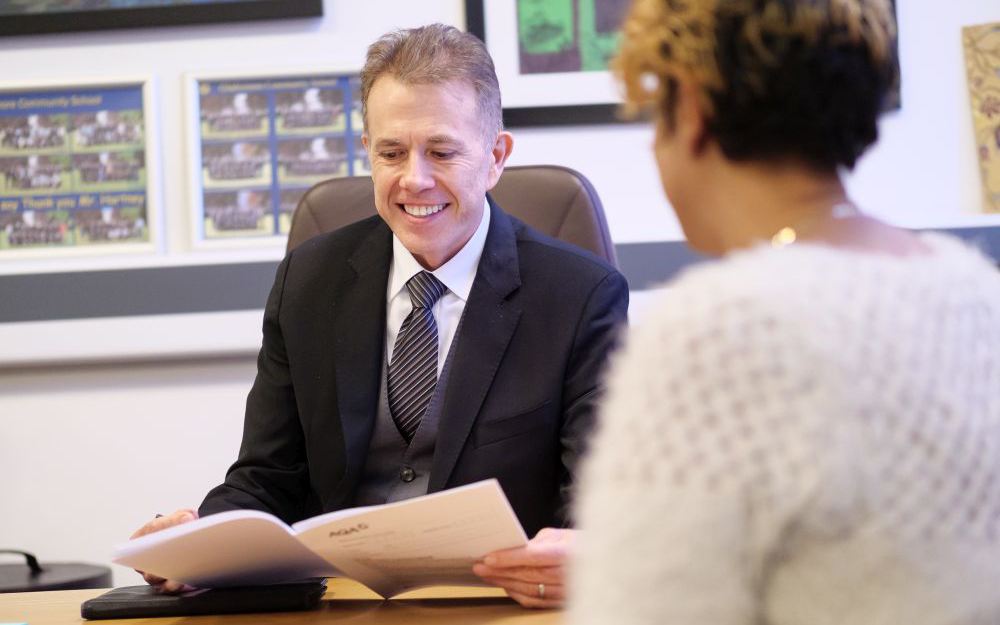Why we need to democratize Ofsted inspections
By IOE Blog Editor, on 19 November 2024

Credit: Phil Meech for IOE.
19 November 2024
This commentary is adapted from Bernie’s contribution to the ESRC Education Research Programme event, ‘Democratic decision-making in English education: whose voices count?’ You can watch the event recording on UCL Mediacentral.
Imagine for one moment that you are subjected to the visit of a team of inspectors. They will come to your workplace at any time after one to three days of giving notice. When they arrive, they will spend a couple of days collecting information (i.e. observations of your performance, interviews with your colleagues and/or ‘service users’, institutional data, etc.). Then, they will use the evidence they have gathered to rate the quality of your performance, which will first be communicated to you in a meeting with you and your team, and then reiterated in a written report a few weeks later. This report will identify the name of your organisation and, once published, will be publicly available for anyone in the world with access to the Internet.
If the inspectors conclude your organisation is doing a good job, new opportunities may open up for you as its leader, such as taking on more responsibility, career progression, and even training those new in your sector and profession. If, on the contrary, the inspectors conclude the performance of the organisation you lead is poor, a spiral of decline might follow. In the worst-case scenario, your institution might be closed or taken over. Colleagues might move to other jobs, while, for those who remain, there might be fewer resources to work with.
Within England’s schools system, these latter risks are very real following a poor outcome from an inspection by Ofsted.
Among OECD countries, England has the strongest high-stakes accountability, of which Ofsted inspection is a significant component. England also has the lowest level of teacher job satisfaction, and lowest level of teacher well-being. John Jerrim and Sam Sims suggest these characteristics make the system unsustainable, by harming its ability to recruit and retain enough teachers. In another study, by Jane Perryman and Graham Calvert, the single biggest factor identified by teachers in England driving them to leave the profession was the high-stakes accountability regime.
Whether or not a teacher exits the profession completely, accountability measures are impacting schools’ teacher turnover. Analysis by Sam Sims found that for schools whose inspection grades had decreased from ‘Requires Improvement’ to ‘Inadequate’, the turnover rate for teachers increased by 3.4 percentage points, equivalent to 25% of average turnover across all school-year observations.
My own research, with Hutchinson and Ehren, analysed the School Workforce Census and found that teacher turnover was more acute for ‘stuck’ schools (those that systematically received a less than good Ofsted grade). Between 2011 and 2018, among primary schools, teacher turnover in such schools rose from 2 to 7 percentage points, and among secondary schools it rose from 3 to 7 percentage points. This is significantly higher than the national picture over the same period. The same study found that (head)teachers working in under-resourced environments experienced considerable anxiety regarding Ofsted inspections. This is hardly surprising, as a poor inspection judgement can cause reputational damage, which can in turn begin a vicious cycle of falling pupil numbers and high teacher turnover that makes it more likely for a school to become ‘stuck’, impeding its efforts to improve.
In these respects, inspection has compounded a broader picture of harms to teacher professionalism and democracy within England’s schools system. Although England’s current governance model has made (head)teachers responsible for the quality of education, it has also de-professionalized them by reducing local decision-making and participation. Many decisions are determined by ‘experts’ removed from the school context, rather than (head)teachers and the immediate communities they serve.
In order to make England’s schools system sustainable again, school accountability needs to shift away from a monitoring system that produces winners and losers. Instead, as Gert Biesta sets out, we need a governance system that recognises the key role of autonomy in (head)teachers’ professionalism, which in turn builds trust and capacity to meet local needs –of students, families, local businesses and communities. As Andrew Boocock argues, self-governance requires dispersion of power, not just dispersion of responsibility. A useful first step would be reviewing how parents and student surveys are used in the Ofsted inspections and whether they capture the data that schools need. Such an approach would allow these ‘system leaders’ to flourish, affording them the power to effectively evaluate their own practice and implement through distributed leadership the improvements needed.
Ofsted has been under increased scrutiny over the last few years and has recently undertaken the ‘Big Listen’ consultation to review its practice and act in the best interests of students. The new Government has also introduced changes to how Ofsted will operate in schools, including taking away the use of one-word judgments in inspections. This is a step in the right direction. Yet we are waiting to see if the future changes democratise inspection by dispersing power among (head)teachers, the most important actors delivering social justice and enhancing the quality of education in schools.
 Close
Close



